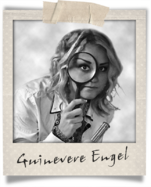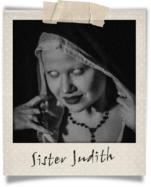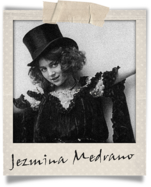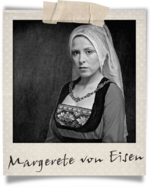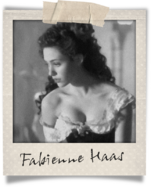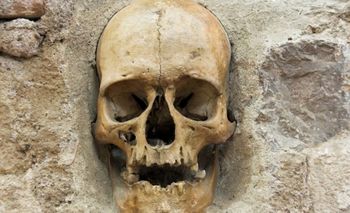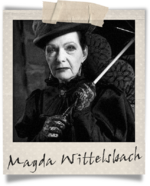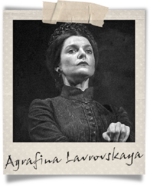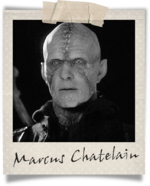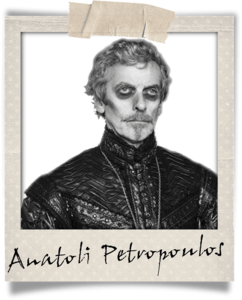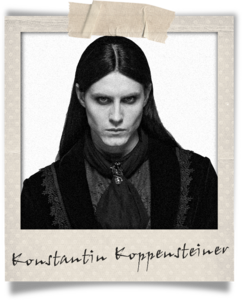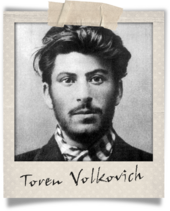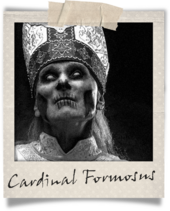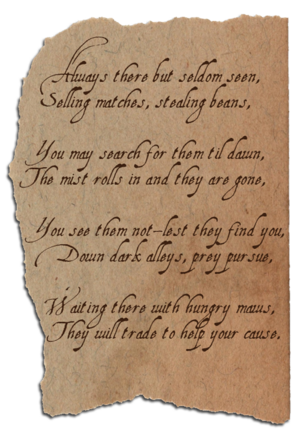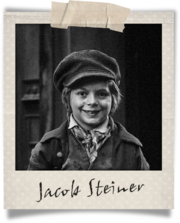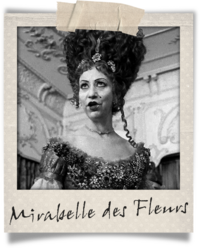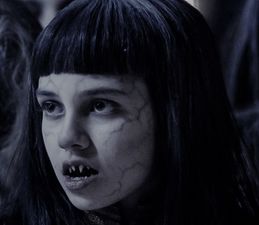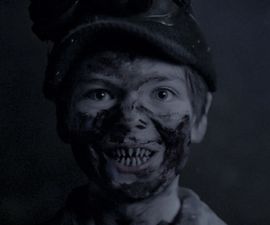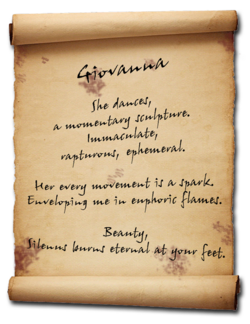2022-05-30
Jump to navigation Jump to search
INVOLVED PARTIES
INCIDENT REPORT
Times are changed; we, too, are changed within them.
The Scene is Set:
Vienna, Austria, 1881: Situated on the western edge of the Hapsburg Empire, the streets of Vienna throng with people of all kinds, and visitors to the city are often quick to notice how cosmopolitan it is in comparison to Europe’s other metropolises. A city where East meets West, populated not just by Austrians, but Hungarians and Poles, Serbs and Greeks, Muslims and Jews—each with their own peculiarities of culture, dress, and style. A place where one can sample all the world’s riches—chocolate from Milan, oysters from Istria, wine from Tokay. Works of art from Italy, France’s fashions, Germany’s books—appear as the traveler’s purse commands, as if by rubbing Aladdin’s lamp. But above all, what makes Viennese culture singular, is its obsession with music, which is elevated here beyond all other forms of artistic expression.
Vienna is a grandiose city of wonder a place to see and be seen, every year in the Augarten, the Emperor releases a massive flock of nightingales to signify the beginning of open-air concert season, and the Prater, a pleasure garden, is home to the largest annual fireworks display in Europe. In these days of revolution and enlightenment, Vienna is a place where one can still believe in miracles. Ever the dance of light and shadow, tradition and innovation, Vienna also boasts the Second School of Medicine, which has seen great advances in germ theory, anesthetics, and the understanding of human anatomy. In the wake of these scientific revolutions, the body has become the last battleground between several warring factions—the religious, the scientific, and the mystical. And at the center of this struggle lies the skull: twenty-two discrete bones that fuse together in the first months of life. The skull is ever the symbol for the human psyche, representing the enigma of life and the unavoidability of death.
Tonight, it is a heady late-June evening in Vienna, dusk has fallen like a curtain on the stage of our play, and as the gas lamps start sputtering into life, so do several unwitting kindred who are about to embark on a peculiar journey.
A Mysterious Invitation:
Celebrated soprano ingénue, Fabienne Haas, awakens in her home At the Asphodels, her eyes open onto a room draped in carpets, curtains, and tapestries; anything that she believes might bring her blissful silence. She finds that she has received an invitation to a midnight meeting At the Skull—curiously, the envelope bares the wax seal of the Small Council. This privy council set up by the ruling Tremere faction merely pays lip service to the concerns of other kindred in Vienna. Before heading there in her small, but ornate carriage, she stops to visit a fan and gives him a dizzying performance that he will not soon forget.
Sister Judith Lucretia rouses herself in the basement of Saint Stephen’s Cathedral, blanketed in darkness, she makes her way to a crypt antechamber where her evening ritual awaits. She carefully lights twelve candles and then smoothly slips down the top of her humble vestments to expose her chest and upper back, before beginning her nightly recitations. From her lips to the void are words of darkness and dismay, mixed with the bitter-sweet scent of her blood on the air from the kiss of the whip she uses to self-flagellate. She too has received an invitation and decides to walk the path to At the Skull, her shadow undulating around her like extradimensional folds in her habit and robes of pitch black as she steps out into the dusty Vienna night.
In the opulent chambers of the royal apartments, Margerete von Eisen arises regally from her heavy, wooden four-poster bed. Her servants are ready and waiting to attend her, they take their time dressing her and styling her hair, completing her meticulous nightly toilette. She instructs her ever-present valet, Gruber, to ready her fencing sword and rifle to take with them to the meeting At the Skull, in case of any incident. They depart in a gilded royal carriage and as she arrives, she is met by the striking beauty of opera singer Fabienne, who has just stepped down from her carriage and the two strike up a conversation.
At the ornate Vogelkäfig Theater, the ballerinas of the Bolshoi troupe are stirring in their nest beneath the stage. Ethereal and otherworldly, their long, lithe limbs and impossibly small waists writhe to life in the belly of the earthen pit they have made there. Hungry for sanguine satisfaction, Jezmina Medrano uses her beguiling beauty and mesmerizing movements to lure a drunken man into her grasp. An expert manipulator, she takes everything she wants from him, and he could not be more pleased to provide. With the money from his pocket, she decides to hire a carriage for the evening and arrives At the Skull to find Fabienne and Margerete starting to draw a small crowd.
Doctor Guinevere Engel awakens in her room at the University of Vienna Medical School where she is studying the intricacies of human anatomy. Finding herself a bit peckish, she slinks down to the post-surgery ward and finds a man still in the dreamy grasp of anesthesia with a conveniently fresh incision on his side. Knowing that her hunger demands more than just blood, she opens his stitches to locate the flesh and organs that she seeks. The glistening mass of offal proves too tempting for her hunger however, and she rips burgundy-black organs from his side with the relish of a starving animal. As she is feeding, footsteps fall down the halls of the ward, likely a nurse, come to check on her patients. In one quick move, Doctor Engel covers the man back up and slinks behind the desk of the empty nurses’ station just in time for the oblivious young attendant to pass. After cleaning herself up in the vacant doctors’ lounge, she heads out on foot into the Vienna night, curious to discover what awaits her At the Skull.
A Hollow Stare:
At the Skull, Sister Judith is the first to enter, passing the small crowd that has gathered around Fabienne, Margerete, and Jezmina with little regard. The others follow her in with Doctor Engel stopping for a moment to regard the skull set into the stone wall above the door of the house, she notices that the house is warded, though not atypically so for a kindred haven. From its perch atop the door, she can feel the skull itself peering back at her, a sense of recognition and acknowledgement radiates from it, like they know each other somehow.
Inside await several members of the Small Council, headed by Ventrue matriarch and Sire to Margerete, Magda von Wittelsbach, the unseated Prince of the local Camarilla before Clan Tremere took hold of the city. She sits regally at the head of the table, primly waiting for tonight’s meeting to begin when Margerete enters and stands beside her.
Regarding a beautiful tapestry is the most celebrated soprano of the Vienna Opera scene, Allegria Iglesias, Sire to Fabienne. Her radiant, ageless beauty and ability to enrapture a crowd have made her the reigning Prima Donna for many opera seasons and her beguiling influence extends far beyond the theater stage. Fabienne greets her with confusion, what are two of Vienna’s most sought-after songbirds doing in a dusty old place like this?
Beside her, staring into the fire is the beautiful, yet wizened, Agrafina Lavrovskaya, ballet Mistress to the esteemed Russian Bolshoi ballet troupe, and Sire to Jezmina. As she stares into the fire, she taps out a rhythm on the floorboards with her dragon-headed cane, stopping only when her childer enters to give her a visual command. Taking her place by Agrafina’s side, Jezmina shows her loyalty openly, and her Mistress nods in approval.
Sister Judith notices a well-dressed man sitting beside the window, scribbling in a notebook while the others begin chatting. A heavy sword rests by his side, a human femur as the hilt is carved in symbols that she recognizes as Gallic Roman, they say something to the effect of “Sacred is the blood of mine enemies, for it sustains me.” Marcus Chatelain’s clan is most obvious, his near-transparent skin marbled with veins and pointed ears signify his Nosferatu lineage without a doubt.
Two pale, gaunt men are talking in one corner of the room, Anatole Petropoulos is speaking with passion and fervor about a rather old looking tome he holds in one hand while the other, Konstantin Koppensteiner, looks on disaffectedly.
As Doctor Engel enters the room, a modestly dressed man who is perusing the bookshelf beside the door flips through a random book and makes a show of inhaling the scent. Turning to her, he remarks that the breakdown of the wood pulp used to make the paper has become chemically similar to that of the vanilla bean, which is what gives old books their pleasant aroma. He then introduces himself as Professor Toren Volkovich, he has been lecturing across Europe on the work of Charles Darwin, and the two strike up a conversation about this fascinating new science that Sister Judith believes is heresy.
The Professor tells Doctor Engel that he has been summoned here to act as a consultant, since on his wanderings across the continent, he took up a sort of rogue archaeologist position debunking the claims of those who “discovered” skeletal remains of the sought-after evolutionary Missing Link. He invites Guinevere to explore the newly opened Anatomical Anomalies wing of the royal Wonder Cabinet with him, saying that there are many famous skulls and other curious things to be found there.
Just as conversations are beginning to flow, all the lights in the room gutter for a moment and a shadowy figure emerges from a hidden side door. The darkness seems to cling to him as he glides into the room, reluctant to relinquish its grasp on his Papal vestments until he is fully into the light. Cardinal Formosus is known to many as the Null Pope, styling himself after the exhumed Papal defendant in the unusual events of the Cadaver Synod. His corpse-painted face and colorless eyes regard Sister Judith, his Childe, until Madame Lavrovskaya acknowledges him with a genuflect, making the sign of the cross. He bestows a light touch upon her forehead, saying “amplecti nihil,” before moving to Judith’s side.
Down to Business:
Herr Koppensteiner snaps to attention at Formosus’ entry, the Keeper of Elysium greets his guests warmly, offering hospitality and sustenance. As footmen enter with decanters of crimson blood, many of the assembled party take a seat at the table with Magda. Professor Volkovich begins pouring a round of drinks as the matriarch reminds Konstantin of the serious matter at hand. The Tremere stronghold on the city for the last decade has been obviously intolerable, but now they have sent out feelers for three very specific human skulls. The craniums of celebrated musical geniuses, Joseph Haydn, Wolfgang Amadeus Mozart, and Ludwig von Beethoven may or may not have arrived in the city yet, but they most certainly cannot fall into the hands of the Warlocks.
Allegria points out that the seeking of these skulls seems suspiciously timed with the culmination of the construction on the new Opera House, set to be dedicated to the city of Vienna by its patron, Count Ewald von Richter. The count is well known in Kindred society as a high-ranking member of Clan Tremere, and it cannot be a coincidence that his ostentatious new opera house will celebrate its opening night with a masquerade ball beckoning all the city’s elite, kindred and kine, to be in attendance.
Marcus snarls at the concerns of the Toreador and Ventrue, remarking that they cared not when the Wizards were butchering his clan and others in the Carpathian Mountains during the Omen War. Sister Judith agrees, as she heard many a tale of horror and butchery to Clans Nosferatu, Gangrel, and Tzimisce in her hometown of Prague while the Camarilla refused to intervene.
Attempting to smooth things over, Anatole speaks up, he agrees with Marcus and Sister Judith, yes, those atrocities, along with the blind-eye turned to the slaughter of his fellow Cappadocians by the Giovanni should not be forgotten. However, the establishment of the Traditions was necessary, and the matter at hand is more pressing—the Tremere must be stopped—so that control of the city may be wrestled from their thieving hands.
Formosus nods solemnly and recites Revelations twenty-one eight, “Those who practice magic arts, the idolaters, and all liars—they will be consigned to the fiery lake of burning sulfur. This is the second death.” Sister Judith toasts to the death of all Usurpers and nearly everyone in the room heartily joins in.
Fabienne turns to her Sire and inquires again why they are here, what does this ancient, and boring, conflict have to do with them. Allegria reminds her that sometimes duty calls upon them to put their abilities to a higher purpose, unlife is not always fun and games.
Magda reigns the meeting back in, explaining that they, as members of the Small Council, cannot act openly or the Tremere will know that they are aware of their search for the skulls. They have called upon their trusted childer and some strange new allies to find the skulls and stop whatever the Trembling Ones are planning. She suggests that they work the salons and parties of the city, finding information on new arrivals to the city or other peculiar goings-on.
Marcus disagrees and puts forward that they should contact Les Mouches, the mysterious spy network that operates within the city. To get them started, he gives them a cryptic rhyme torn from the pages of his notebook:
Always there but seldom seen,
Selling matches, stealing beans,
Though one may search until dawn,
The mist rolls in and they are gone,
You’ll see them not—lest they find you,
Down dark alleys, their prey pursue,
Waiting there with hungry maws,
They will trade to help your cause.
Professor Volkovich tells this new coterie that they can find him in the anthropology department at the University of Vienna, he would like to examine the skulls when they find them to ensure that they are not hoaxes or decoys.
Cardinal Formosus holds up and hand to alert those assembled that there is an interloper, and just as the valet from the foyer comes in to warn Konstantin that the carriage of Fräulein Schechter has arrived, the shadowy Pope disappears into the inky darkness from whence he came.
Konstantin mentions that their Tremere chaperone must have figured out they were meeting without her and instructs Marcus to lead the coterie out unseen. The nosferatu nods and shows them to a series of dark, stony corridors that make up the inside of the ancient Roman wall which encircles this part of the city. Through almost total darkness he leads them out and down the street to an opening where they can just hear the Council members toy with the visibly frustrated Tremere woman before departing At the Skull.
As Marcus wordlessly disappears into the cover of the Vienna night, the coterie decides to split up to cover the most ground, with Fabienne and Margerete heading to the swanky salons and Sister Judith, Jezmina, and Doctor Engel endeavoring to find Les Mouches.
Prey for Mercy:
Sister Judith suggests that the clinic at the Cathedral of St. Stephen might provide someone with an idea of how to contact Les Mouches, since they minister to the sick and needy. She takes the Doctor and Ballerina there to visit with Hermman, the elderly man to whom she bestows some vitae after he tells her there was a new admit that day in the children’s ward.
In the small room where the children sleep, Sister Judith and the others find the new face, a young boy with a broken arm struggling to sleep through the pain. As she wakes him for questioning about Les Mouches, she discovers that his arm was broken by a merchant while he was trying to steal some bread. For the promise of extra rations, young Jacob Steiner tells the Sister that if she offers them up a juicy morsel, implying one of the other children, Les Mouches can be found in a warehouse cellar near the market accessible through a particular alley.
Relaying this to the others, Jezmina has serious reservations about offering up a child as a sacrifice, no matter how good the information might be. Upon inspection though, Doctor Engel ensures her that this would be a mercy, as one of the children in particular struggles with consumption and is not long for this world anyway. Reluctantly, Jezmina relents that it would be better than a prolonged death to the ravages of disease. But before they can leave with their offering, Sister Judith is overcome by the darkness and knows she must feed. Lifting the child up with many serpentine shadows, she drains the child dry, her tiny limbs and face sinking in as all the blood in her body is leeched away.
Jezmina leaves the clinic horrified and rests outside the door to regain her composure just as three young men approach her. They seem up to no good, which is just how she likes them, and she employs her unearthly talents to get the ringleader alone. Sister Judith and Doctor Engel exit the church as Jezmina leads the young man down an empty side street where the Sister lands a knockout punch directly on his nose. With preternatural strength she lifts him and slinks through the shadows to the place where Les Mouches might be found, Jezmina and Guinevere struggle to keep up, but make it to the alleyway just a moment behind.
An Impromptu Aria:
Fabienne and Margerete arrive At the Golden Lyre, one of the most popular and exclusive salons in the city’s nightlife where they are sure to find someone with loose lips. Finding the verve of the rowdy crowd a bit difficult to endure, Fabienne stuns the partygoers into silence with a commanding, yet soothing performance of a gentle, sweet melody. Her performance, and mere presence, attracts the attention of the Lady Mirabelle des Fleurs, escaped from the court of Emperor Bonaparte before his defeat in the Franco-Prussian war and fall of the Second French Empire.
Mirabelle is thrilled to make new friends in the rising opera star and excitedly recognizes Margerete as a member of the royal family. She tells the two that she is excited to attend the opening masquerade ball at the end of the week when the new Opera House is complete, and that anyone who is anyone will certainly be there, including the illustrious Count von Richter, who funded the entire project.
Though she is happy that it is an exclusive affair, she does muse that across town—far across town—there is a companion performance being put on for the peasantry, as even Herr Mozart knew that the common folk deserved to enjoy music as well as the nobles such as herself. Fabienne is disconcerted at this belittling of the common people, as unbeknownst to anyone, she used to be one herself.
Mouths to Feed:
Back in the alleyway behind the market, Sister Judith drops the still unconscious young hooligan down in front of the cellar door and Jezmina knocks the way young Jacob told them too. After a moment the doors burst open and a swarm of tiny, filthy hands drag the man into the cellar. A cacophony of ripping flesh and gnashing teeth spills forth from just inside the door and in a moment ceases before two small figures emerge. A pair of soot and blood-stained children approach the assembled women, and thank them for the hearty meal, asking what information they would like in return.
Jezmina asks who has been looking for skulls coming into the city, and they tell her that many have come and gone at the behest of The Pawnbroker, who resides in the Dorotheum and does business with all clans of kindred, kine, and even—others. They also know that the new section of the Emperor’s Wunderkammer is about to open, featuring many oddities of flesh and bone.
Before they leave, Les Mouches inform Jezmina that The Dowager has been moved from her apartments at The Fool’s Tower to her family manor, Starecross Hall. Though the kine believe that she is elderly and about to die, the kindred of the city believe that she has one of her “episodes” and will soon call for some neonates to be delivered to her to be devoured. They thank the women again for their meal and tell them that they are free to call on them again for information.
As Jezmina steps back into the marketplace, a figure hastily presses a bouquet of peach blossoms into her hand before quickly disappearing into the throng. Wrapped around the stem is a note on bloody-stained parchment that reads:
Giovanna
She dances, a momentary sculpture.
Immaculate, rapturous, ephemeral.
Her every movement is a spark.
I am enveloped in euphoria of flames.
Beauty, Silenus burns eternal at your feet.
Remarking to Sister Judith and Doctor Engel that this sometimes happens to her, she asks if either one of them might have some insight. The Doctor examines the parchment and discovers that it is stained with kindred blood that is imbued with a passionate, almost desperate resonance.
New Best Friend:
Ever the fountain of information, Mademoiselle des Fleurs tells Fabienne and Margerete that she is also looking forward to the arrival of a celebrated medium from America, who brings with her the skull of Joseph Haydn. This “Boston Banshee” is to perform a séance the very next night at the newly built Votivkirche, in an attempt to summon the spirit of the most pious composer. The performance is unfortunately sold out, though Mirabelle is sure that such grand personage as her two new friends should surely be able to get their hands on an invitation.
Having gathered intel a plenty, the pair depart the salon with Mirabelle eagerly hoping to see them again the next evening. As Margerete returns to the royal apartments with Gruber, Fabienne slips off to the home of her friend Henri Marchande, an alchemical theorist and musical occult scholar. She leaves a note with his butler that they are to meet the next evening regarding the use of skulls in rituals of summoning the dead before heading back to her sound-proofed bedroom to hide away from the fast approaching rays of the sun.
MUSIC FROM THE WIENER STAATSOPER

